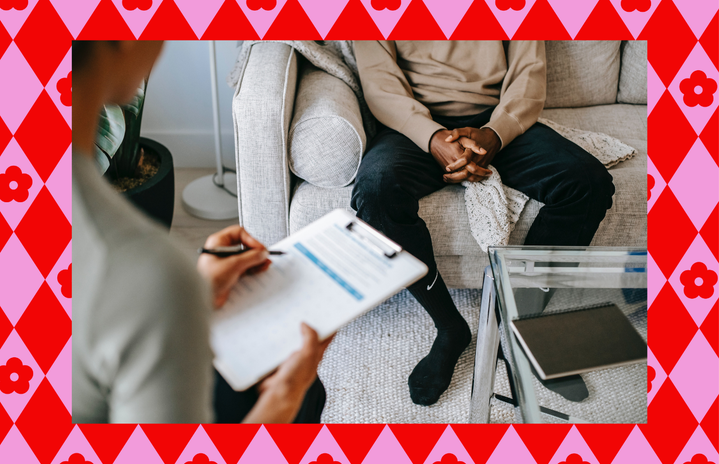TW: some sensitive content
I’ve been in therapy since the age of six, because my mom, my teachers and well my psychologist, were all in agreement that I had ADHD (Attention Deficit Hyperactive Disorder). As time went on, therapy became more than an academic requirement for my neurodivergence, but a way to cope with my trauma, sadness and anger.
My mom took me to therapy throughout my earlier childhood years and I visited my school counselor once a week (I was one of those cool elementary school kids that got taken out of math class to go to counseling). After my mom died in 2013, my grandma was very invested in the idea that nine-year-old me, needed something more consistent and thorough.
We tried 2 out-of-school therapists in 2 years, and we disliked both of them. One was too demanding and treated me like I was her child, and the other continuously made me speak and never gave me any feedback. My grandma and I decided I could take a break. I didn’t need to constantly speak to someone anymore and we officially unenrolled in all services in 2017.
I did okay without it, I mean I was only in about 7th grade at the time but from 7th-10th grade there were no major life events and between mine and my grandma’s schedule, it didn’t make sense to continue.
Then came 2020 and I mean, need I say more? My mental health got very low because I don’t enjoy being kept in the same space for such a long time and on top of that, my grandma’s cancer had progressed to “end of life care” and she passed away on May 12th (ironically, my mom died May 11th).
If that wasn’t enough to say I needed to see someone, I got into a relationship that year (my first mistake was doing this less than a month after my grandma died but that’s not my point) and not only was it the most toxic, unhealthy and mentally abusive relationship I have ever been in, but he also was my rapist.
I will spare the details of that but needless to say, I enrolled in therapy again on my own by September. I genuinely enjoyed it and my therapist, and I had built such a good relationship. She, however, neglected to mention at the beginning of our relationship, that the program I was in was a 60-day program and afterward she would only be able to refer me to someone else, but could no longer see me as a regular patient.
My attachment issues and my “everyone I get close to either leaves or dies’ ideology definitely were not at peace with this, but I did find another therapist that I had for the next two years before coming to college. Said therapist is only an “In-state” counselor, and once I moved from NYC to Scranton, I also lost her as well.
I came to college as a psychology student because I genuinely wanted to help people and be for someone else, what I needed. I quickly learned what a lot of psych majors learn: that psych is a lot more science and a lot less helping people. I changed my major by the end of my first semester to Counseling
and Human Services, which is where I am happily at now, and I also see a counselor at the counseling center.
Now, as a counseling major I am currently taking two counseling classes, one of which is specifically about the dynamic of counseling relationships. I’ve learned how to complete intake and risk assessments as well as empathy, paraphrasing and so many other things.
I often get laughed at when I tell people I am both clinically depressed and a counseling major, because people joke that the solution should, quite literally, be in my notes. I find the joke funny but the gravity behind not only that statement, but why I wanted to write this.
I don’t think that therapy should ever be a “one-size-fits-all” dynamic. I’m sure I have learned all of techniques to cope with my stress and mental health issues that work for ME, but they may not work for everyone. I have grown a lot both in my personal therapy and in the classroom and I’ve learned what works for me and how I hope to be as a future therapist.
There were many things in my past therapists that I want to do for someone else, and many things I hope I never do. I have changed the dynamic of even my personal relationships because of what I have learned in my counseling classes.
I did also want to emphasize that you don’t need to be diagnosed with depression, anxiety or any other mental health disorder to see a therapist (which by the way, therapists don’t diagnose these disorders). You can see someone for help in absolutely anything, and I hope everyone feels comfortable enough in doing so.
I have tried six therapists and have finally found the one I think I want to stick with, and I hope you all find that person for you. Whether it is a counselor, a mentor, a faculty member, or a friend, I hope you find the person that you want to “stick” with.

